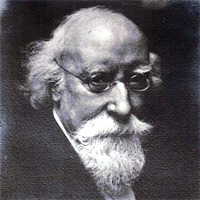Poems ascribed to Mo Ling and related poems from Brussels MS 5100-4, pp. 50-67: 1. Tainic rath forettarsa, 18qq (pp. 20-22); 2. Glend na n-aingel n-ainglidhe, 14qq (22-23); 3. Moling cecinit. Gair na Gairbhe glebinne, 18qq (23-24) and scribal colophon; 4. Cros an Choimdhedh cumachtaigh, 12qq (25); 5. Moling cecinit. A bhen Graig is graccda sain, 24qq (26-28); 6. Molling cecinit. Daigh Cairill ticfa im dail, 4qq (28); 7. A Mulling, na mill mo tuat[h]a, 3qq (28); 8. Angelus Dei et Mulling dixit. Gabhal do sruth Órt[h]anain, 3qq (29); 9. Mulling cecinit. Mo muilendsa is geb dedáil, 5qq (29); 10. Mulling cecinit. Cellan cille Daimcinn duir, 5qq (30); 11. Mulling. Tangas cuccam o Choin Cruacan, 3qq (30); 12. Mulling cecinit. Cech righdamhna Raigne, 3qq (31); 13. Mulling. Cech fer cloinne Conallaig, 3qq (31); 14. Mulling cecinit. Bennacht lem do Chiarraighibh, 5qq (31-32); 15. Mulling cecinit. IS feta in t-airiughadh, 8qq (32); 16. Mulling cecinit. Féocháine mac Brain, 3qq (32-33); 17. Mulling. A Meic Muire it foircclidhe, 3qq (33); 18. Mulling cecinit. Bennacht in Coimdedh do nimh, 4qq (33); 19. Mulling cecinit. Hua Briuin occom riaruccud, 6qq (34); 20. Mulling cecinit, nisi vel potius Dunchadh de quo in fine. Hui Degadh Osraighe áin, 24qq, and marginal note (34-36); 21. Mulling cecinit. Uamhain Gall tainic Muling, 21qq (36-38); 22. Mulling cecinit. Disert mBrecain sunn istleiph, 4qq (39); 23. Colum cille cecinit. Tegh Mulling meic Faolain, 5stt (39-40); 24. Mulling cecinit. A meic madatt buan, 19qq (40-41).



